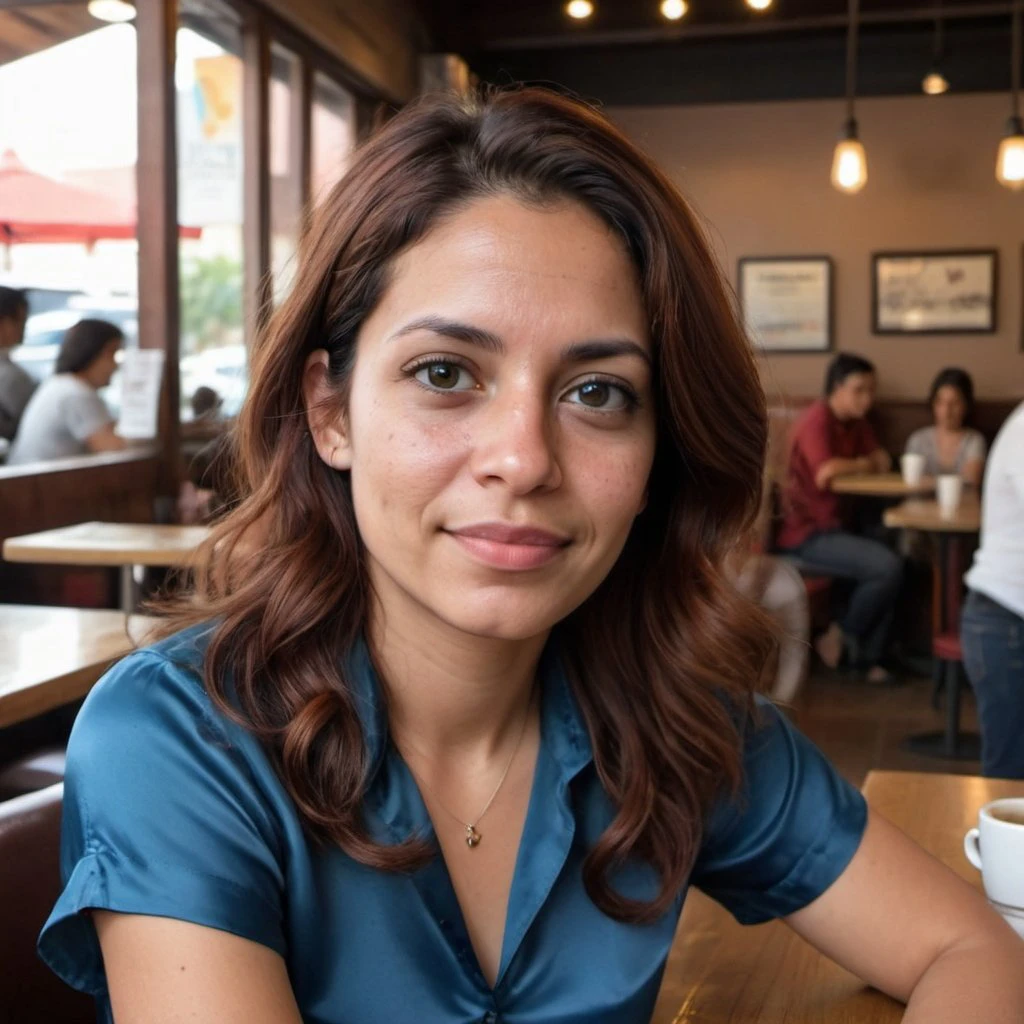In Turkey, saying “thank you” will go a long way. Politeness matters in Turkish culture, and being able to show appreciation appropriately will help you get closer to local people.
In this article, I’m going to cover different ways to express your thanks in Turkish, when each should be used, and how to make sure you don’t slip up.
While you’re traveling around Turkey, make sure you have the iRoamly Turkey Travel eSIM with you. That way, you can ensure you can keep in contact with loved ones no matter where you are in your trip.
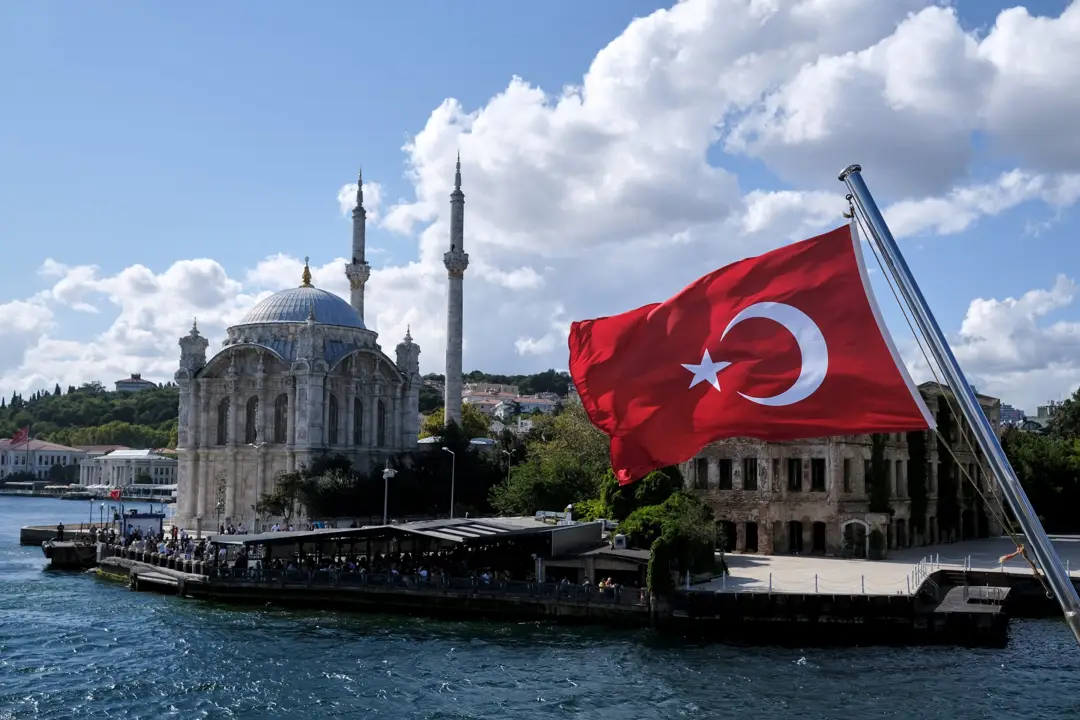
How to Say Thank You in Turkish
1. Teşekkür ederim – Thank you
When to use:
It’s not as casual as “teşekkürler” but still widely used to say thank you in Turkish.
For the most part, you can use this almost everywhere: at a restaurant, in a store, or even just a random pleasant exchange with a stranger.
Tips:
“Teşekkür” is just a noun. If you somehow try to say this word to thank a Turk for something, they are going to understand what you mean, but think you’re rude.
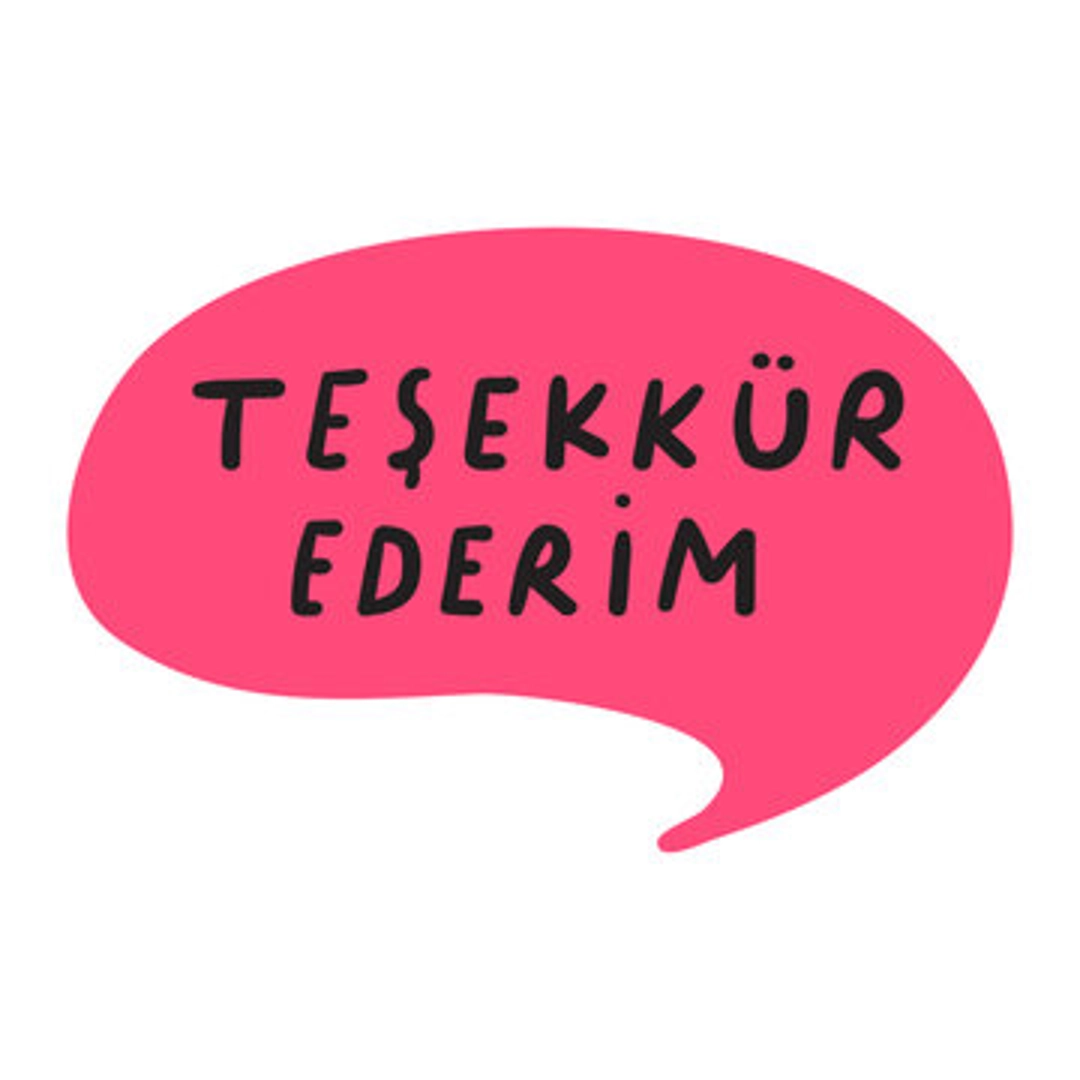
2. Teşekkürler – Thanks / Thank you
When to use:
This is a slightly less formal way of saying “thank you.” It’s appropriate for casual situations, such as with a friend, coworker, or someone you know.
It’s quick and easy and ideal for situations when you don’t need to be super formal.
3. Sağ ol – Thanks (Literally: Be healthy)
When to use:
This is quite an informal phrase and it’s best used around friends, family, or closer peers. It’s a laidback and friendlier way of saying thank you.
Just don’t use it in business or with someone you don’t know as it can seem too informal.
4. Sağ olun – “Thank you” (formal version)
When to use:
This is the formal way to say “sağ ol” and is considered polite when speaking to your elders, strangers, or people in charge.
Tips:
This is a shade more polite than “teşekkürler,”so use it in a formal conversation.
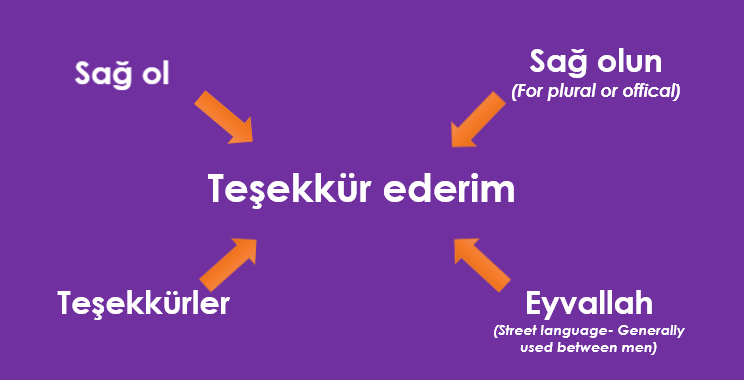
5. Çok teşekkür ederim – Thank you very much
When to use:
Use this phrase when you want to stress how thankful you are for their help. Appropriate for when someone is particularly helpful.
Tips:
If you’re in a formal situation, this is a fantastic phrase to express heartfelt gratitude.
6. Minnettarım – I’m grateful
When to use:
This phrase shows very deep gratitude and is saved for cases in which someone has done something large or meaningful.
Not commonly used in daily speech but is used when you want to show your gratitude.
7. Müteşekkirim – I am deeply thankful
When to use:
When expressing formal thanks in an official or professional context.
Often used in written communication rather than conversation.
Tips:
Rarely used in daily conversations.
Best suited for formal letters or official settings.
8. Eyvallah – Thanks / Alright
A more laid-back and cool way to say “thank you.” It’s more commonly used by males.
When to use:
Used among close friends or in casual conversations.
Common in street culture and informal settings.
Tips:
Very informal and colloquial.
But don’t use it in formal situations or with the elderly.
9. Eksik olma – Thanks (Literally: Don’t be lacking)
When to use:
Often used in more rural or traditional settings.
Can be used to show deep appreciation.
It’s less common in urban areas.
How to Respond to Thank You in Turkish
1. Rica ederim – You’re welcome / Don’t mention it
When to use:
Suitable for both formal and informal situations.
Response to when someone expresses gratitude to you.
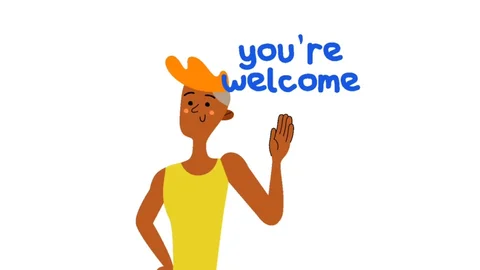
2. Bir şey değil – It’s nothing / No problem
When to use:
Perfect for informal situations.
When responding to friends, family, or acquaintances.
3. Ne demek? – What do you mean? / Of course
When to use:
When you want to stress that helping was not a problem.
Primarily used when you’re talking to friends, family, or locals.
4. Sorun değil – No problem / No worries
When to use:
Suitable for informal situations.
When someone thanks you for something minor.
Common in daily conversations.
Best avoided in formal or professional settings.
5. Her zaman – Anytime / Always
When to use:
When offering ongoing support or assistance.
For friends, family, or good buddies.
6. Allah razı olsun – May God be pleased with you
When to use:
When someone lets you know they appreciate your generosity.
Often used in religious or traditional settings.
It carries spiritual meaning and warmth.
Best used in appropriate cultural or religious contexts.
7. Eyvallah – Alright / No problem
When to use:
Suitable for informal, everyday conversations.
Commonly used among men or in street culture.
Very informal, avoid using it in formal settings.
It’s also a colloquial way to say goodbye.
How to Politely Say No in Turkish
1. Hayır, teşekkür ederim – No, thank you
Meaning: The politest and nicest way to decline something.
When to use:
Suitable for both formal and informal situations.
When you need to refuse an offer of food, drinks, or help.
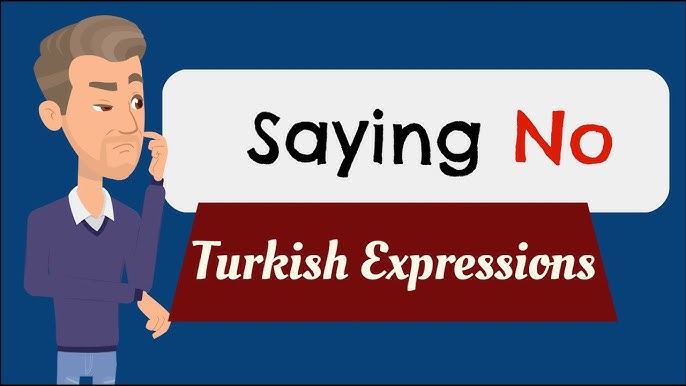
2. Yok, sağ olun – No, thank you (more casual)
When to use:
When you’re turning down the offers of friends, family, or acquaintances.
Common when politely declining small favors or food.
3. İstemem, teşekkürler – I don’t want it, thanks
When to use:
When turning down offers that are repeatedly made.
Useful for informal situations or if you’re bargaining.

4. Gerek yok, teşekkür ederim – There’s no need, thank you
When to use:
Politely rejecting help or offers.
Commonly used in stores, markets, or public settings.
Suitable for formal and informal situations.
5. Almayayım, teşekkürler – I’ll pass, thanks
Meaning: An informal way to refuse something, frequently employed in daily life.
When to use:
When rejecting food, drinks, or an offer in a casual situation.
Suitable for declining offers from friends or acquaintances.
Tips for Saying Thank You in Turkish
1. Etiquette Is Important
“Teşekkür ederim” and “sağ olun” should be used in formal settings, while “sağ ol” can be used with friends.
2. Tone & Context
Be warm and genuine in your tone, especially when using heartfelt phrases like “minnettarım” or “Allah razı olsun.”
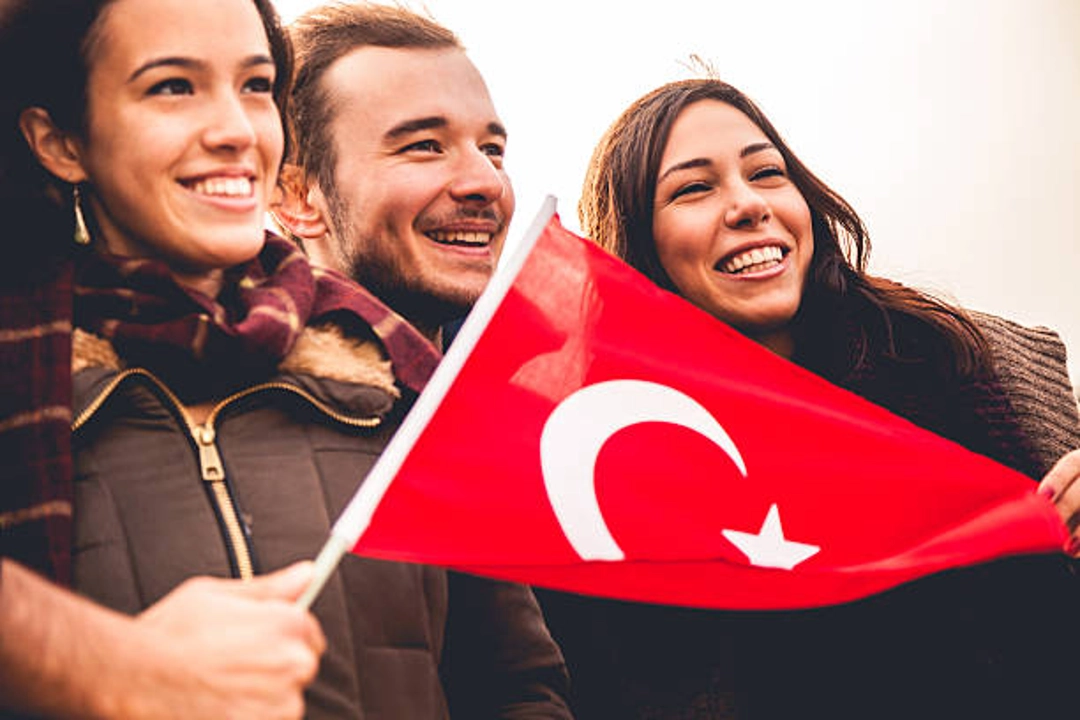
3. Body Language
A warm smile and accepting nod can be the best way to show your appreciation when saying thank you.
FAQ
1. How do I say hello in Turkish?
In Turkish, the most common Turkish greeting phrase is “Merhaba” (meaning “hello”). For informality, you could use “Selam” instead.
2. Can’t I Just Give a Head Nod Instead of Saying Thank You?
It’s always a good idea to say thank you, even if you nod towards the person. Simply nodding your head makes you sound dismissive.
3. How do I say thanks for the meal in Turkish?
A standard and courteous phrase to say after a meal is:
“Ellerinize sağlık” - “Health to your hands” (meaning the hands that cooked it)
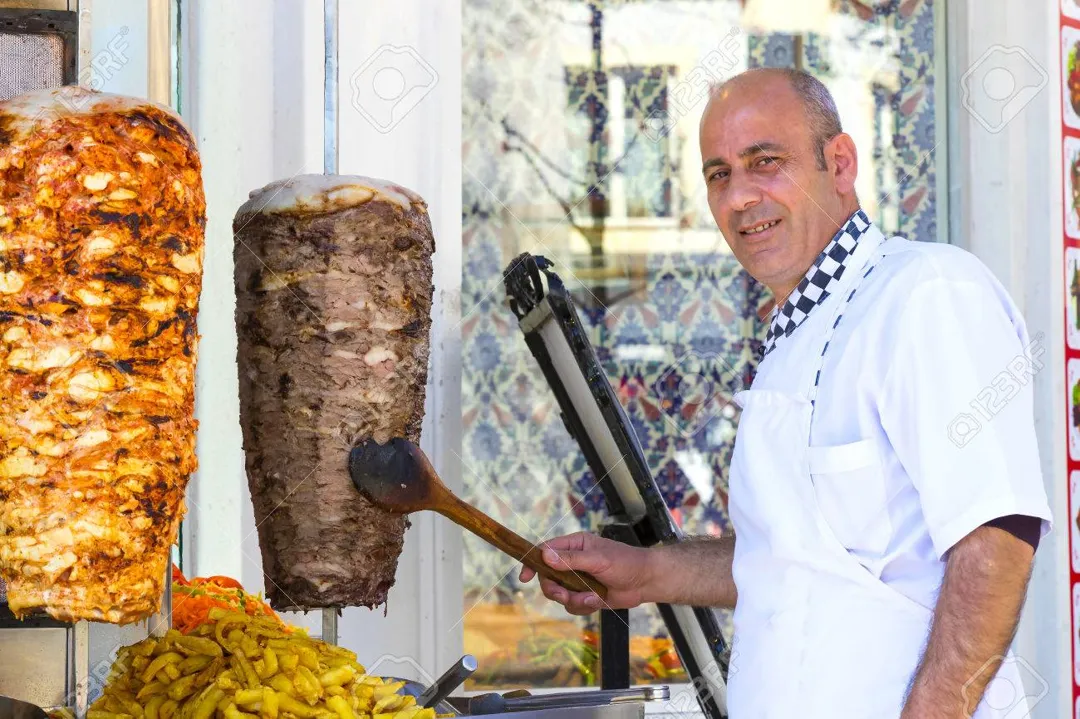
4. What’s the best way to say thank you when you’re leaving a store or restaurant?
Simply say “teşekkür ederim” or “teşekkürler” with a smile, or add “iyi günler” (“have a nice day”) for extra effect.
5. Is there a hand gesture to accompany saying thank you in Turkey?
A small head bow or a hand over your heart when you say “thank you” in turkish (“teşekkür ederim”) can help convey your thanks with more emotion and humility.
Conclusion
During this Turkish thank you lesson, we’ve peeled back the layers of words for saying thank you.
From everyday speech to thankful responses in diverse situations and everything in between, we’ve seen the ins and outs of politeness in Turkey.
If you're just starting out, exploring the Turkish language essentials can really help you grasp these expressions better.
Face-to-face or in a chat, the more you understand and practice these words, the more meaningful your thanks will be.
